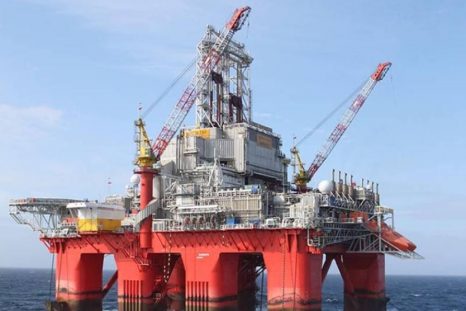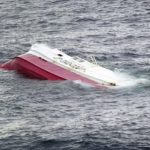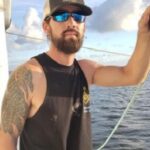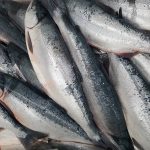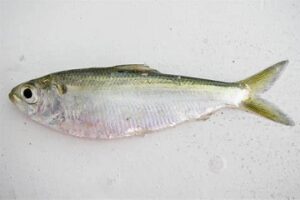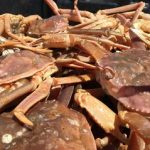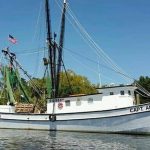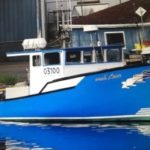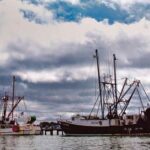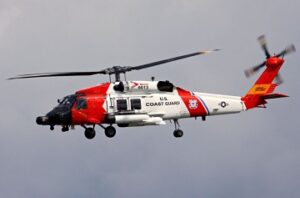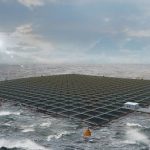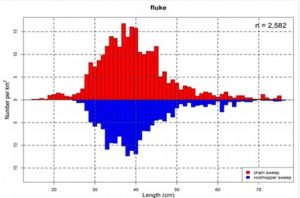Monthly Archives: April 2018
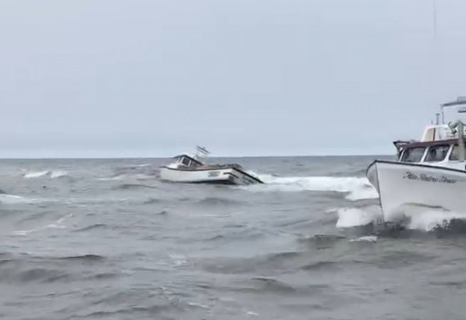
Lobster fishermen rescued after boat hung up on sandbar in western P.E.I.
Northeast winds and low tides made setting day a challenge for some lobster fishermen on P.E.I. Monday. A fisherman and four crew had to be rescued in Hardy’s Channel in western P.E.I. at around 11 a.m. when their boat got hung up on a sandbar and water started coming in, according to Lloyd Phillips, the president of the Hardy’s Channel Fish Co-op. And at Covehead Harbour, fishermen said about half a dozen boats ended up docking in Rustico because a sandbar prevented them from getting back into Covehead. >click to read<23:13
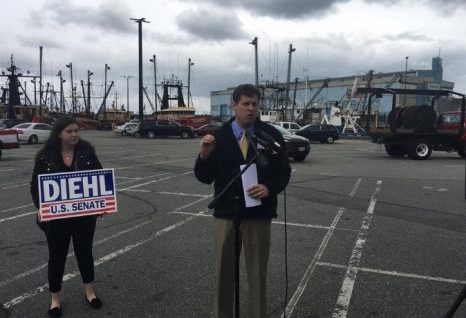
GOP Senate candidate Geoff Diehl visits New Bedford waterfront
The endorsed GOP candidate for U.S. Senate visited the city’s Pier 3 on Monday promising to be more hands on for the city and fishermen, according to a news release. “New Bedford deserves a dedicated senator who will put in the long hours to make a positive difference,” state Rep. Geoff Diehl said in the release. “Sen. (Elizabeth) Warren has been more focused on selling books than saving the fishing licenses in New Bedford. … Her lack of action will cost New Bedford vital jobs and cripple the local economy.” >click to read<20:59
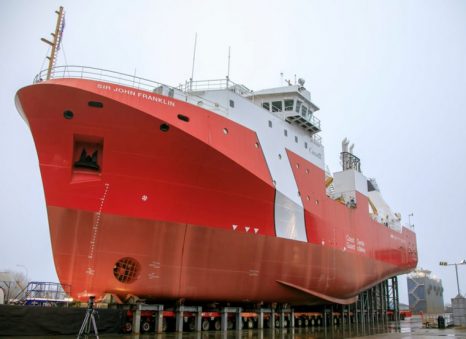
Sea trials for new Coast Guard vessel set for the summer
The first Offshore Fisheries Science Vessel for the Canadian Coast Guard was launched at Seaspan Shipyards in Vancouver in December and a short time later transferred to Victoria, BC for finishing work. The ship, Sir John Franklin, is the first large vessel to be designed and built under the National Shipbuilding Strategy. Defence Watch has received a number of emails indicating that there are major electrical issues with the vessel. >click to read<20:16
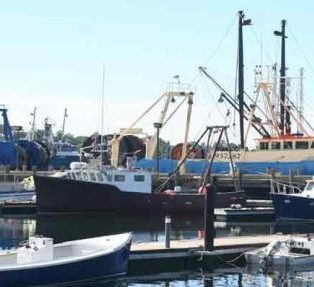
Northeast Multispecies 2018-2020 Groundfish Catch Limits, Quota allocations for 17 of 19 sectors, Northern Gulf of Maine Scallop Area
Through Framework 57, we have set catch limits for 20 groundfish stocks for the 2018-2020 fishing years (May 1, 2018-April 30, 2020), including the 3 stocks managed jointly with Canada.>click to read< NOAA Fisheries is allocating 2018 quotas to 17 of 19 groundfish sectors based on catch limits approved in Framework 57 to the Northeast Multispecies Fishery Management Plan. >click to read< NOAA Fisheries is closing the Northern Gulf of Maine Scallop Management Area to all federally permitted Limited Access General Category scallop vessels effective 0001 hr, on May 2, 2018. >click to read<17:29
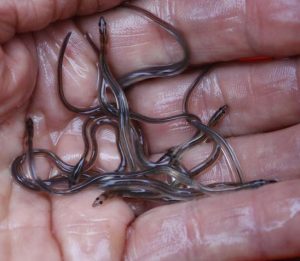
Why Maine Is The Only State In The US With A ‘Significant’ Elver Fishery
If you’ve ever read a story in the news about elver fishing season, you’ve probably seen some variation of this line: “Maine’s the only state in the U.S. with a significant fishery for elvers.” Maybe you thought that’s because elvers don’t exist in large numbers outside of Maine — that would be a reasonable assumption. But the real reason is somewhat more complicated. Let’s start at the beginning, in the Sargasso Sea. Although it sounds romantic, the Sargasso Sea is actually just an area of the North Atlantic that’s full of Sargassum,,, >click to read<14:56
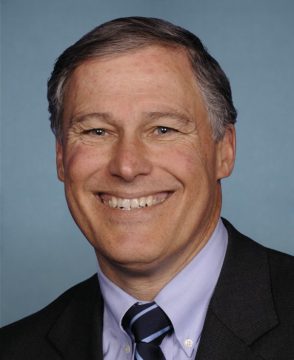
Governor-Led Orca Recovery Effort to Hold First Meeting on Tuesday
An orca conservation team convened by Gov. Jay Inslee is holding its first meeting on Tuesday. The Southern Resident Killer Whale Recovery Task Force will focus on ways to help the Northwest’s iconic species. Stephanie Solien, who is co-chairing the Task Force, says many of the remaining orcas are in bad shape. She says the Task Force will focus on three of the well-known threats to the whales. Solien says conservation will be a statewide effort, especially when it comes to saving the chinook salmon the whales feed on. Watch out! >click to read<14:23
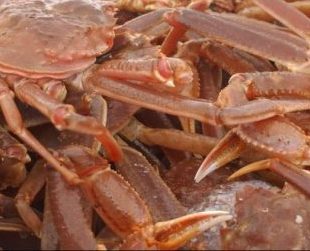
FISH-NL calls on FFAW-Unifor to appeal 2018 crab price; questions why union isn’t fighting for inshore harvesters
The Federation of Independent Sea Harvesters of Newfoundland and Labrador (FISH-NL) is calling on the FFAW-Unifor to appeal the price of snow crab set in early April by the Standing Fish Price Setting Panel. “Why isn’t the FFAW-Unifor fighting for inshore crab harvesters?” questions Ryan Cleary, President of FISH-NL. “The $4.55 a pound price set for snow crab in this province is well below the $5 a pound offered in the Maritimes, and the $8 a pound wholesale price that Japanese buyers were reportedly lining up to pay earlier this month.”>click to read<12:33
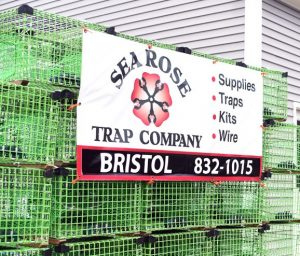
Sea Rose Trap Co. Opens Bristol Location
The South Portland-based lobster trap manufacturer Sea Rose Trap Co. has teamed up with Bristol resident Mike Prior to open a new location in Lincoln County. The new trap shop is at 452 Harrington Road, in the village of Pemaquid. “We have quite a few customers in the Midcoast area – customers and small trap builders that we service,” owner Don Jackson said. Don Jackson and his son, Adam Jackson, co-own the company, which has been making lobster traps since 1993. >click to read< 12:10
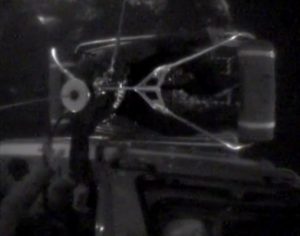
Coast Guard medevacs fisherman 35 miles east of Manasquan Inlet, NJ
A Coast Guard aircrew medevaced a 36-year-old man suffering from a possible stroke aboard a fishing vessel approximately 35 miles east of Manasquan Inlet, New Jersey, Sunday evening. The captain aboard the fishing vessel contacted watchstanders at Coast Guard Sector Delaware Bay in Philadelphia at about 5:45 p.m. to request a medical evacuation. “The crew of the fishing vessel did a great job notifying the Coast Guard immediately after the incident,” said Lt. Spencer Grinnell, the co-pilot on the case. (an inquiry revealed the name of the vessel not included in the report named F/V DS Express.) >click to watch video<11:26
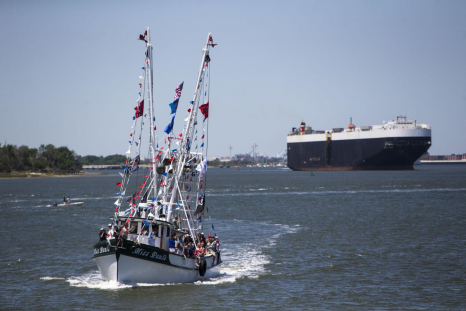
Cold waters, few shrimp means delay in South Carolina season opening
Two years ago, Greg Herald and two partners decided to try to beat the odds. They bought a shrimp boat and began working from Shem Creek. They wanted to become part of the traditional Lowcountry fleet that is struggling just to hang on. Today, the partnership has liquidated. The veteran commercial fisherman among them, Vince Shavender, has gone home to North Carolina. Herald plans to continue selling shrimp from a roadside stand — local catch if he can get it. But last year he traveled as far as North Carolina and Georgia to find enough to sell. The third partner, who bought out the boat, didn’t return phone messages asking if he is still in the shrimping business. >click to read<10:32
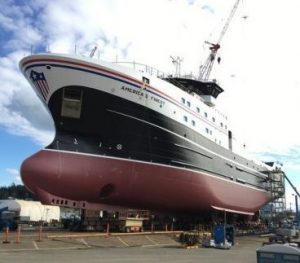
The Jones Act Drives America’s Finest Into Exile
America’s Finest, a brand-new 264-foot fishing trawler, ought to be the pride of the fleet. As a newspaper in its birthplace of Anacortes, Wash., explained, the ship features an “on-board mechanized factory, fuel-efficient hull, and worker safety improvements”—priceless features for fishermen operating in the treacherous seas off Alaska. The ship is also said to have a smaller carbon footprint than any other fishing vessel in its region. According to Fishermen’s Finest, the company that ordered the ship, it would be the first new trawler purpose-built for the Pacific Northwest since 1989. Sadly, it seems increasingly doubtful that the ship will ever ply its trade in U.S. waters. >click to read<09:07
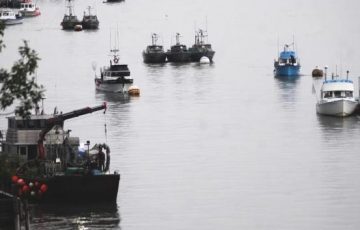
Upper Cook Inlet – Commercial fishermen to open with regular periods
Commercial fisheries managers in Cook Inlet are moving forward with a cautious eye on salmon runs but relatively normal fishing regulations for the summer. An Alaska Department of Fish and Game announcement released Friday detailed the 2018 commercial salmon fishing management strategy for Upper Cook Inlet. Managers are predicting a somewhat lower Kenai River late-run king salmon return, but it’s still within the sustainable escapement goal; the sockeye salmon forecast for the Kenai River is predicted to be 2.5 million, which is about 1.1 million less than the recent 20-year average. >click to read<08:04
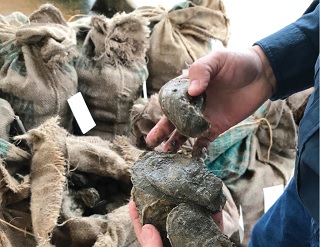
The Texas Oyster Industry Is Now a Shell of Itself
It’s the first day of Texas oyster season, and Galveston Bay is packed with so many boats that 33-year-old Captain Joaquin Padilla decides to post a video of them on Facebook, adding a side-eye emoji as comment. Padilla has been on the water with his little crew since sunup, steering his boat, the Miss Kosovare, in languid circles, dragging his dredge—a chain and metal basket about the size of a basking shark’s mouth—over the oyster reefs below. His is one of about 150 trawlers out this November day, harvesting bivalves from the limited wild reefs on the bottom of Galveston Bay, right in Houston’s backyard. Out on the water, Padilla sticks with a smaller group of about ten boats that all belong to his buddies and family—his father, uncle, brother-in-law, and cousins all make a living oystering, too. >click to read<20:31
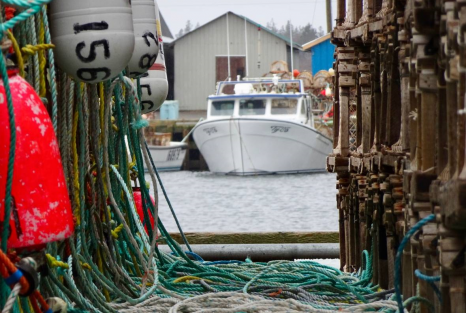
Setting Day: ‘One of my busiest days, stressful days, my exciting days of the year,’ says 22-year fishing veteran
Lobster fishermen at many Prince Edward Island harbours were busy getting their boats, traps and crew ready for the start of the spring season Monday. The tradition of the 6 a.m. start and the busy day of getting all the traps in the water for the first time each year is known as setting day. At Malpeque Harbour, on the northern part of the Island, it was a hive of activity Sunday as fishermen worked to get ready. >click to read<18:44
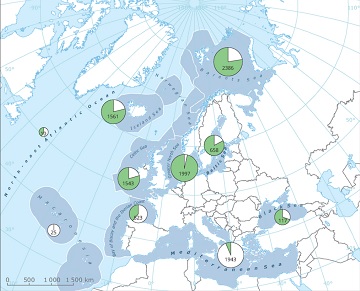
Status of marine fish and shellfish in European seas
Safeguarding healthy commercial fish and shellfish populations is one of the 11 descriptors of the Marine Stretegy Framework Directive (MSFD) for achieving GES. This objective is closely related to the objectives of the Common Fisheries Policy (CFP), in particular the objective of ensuring the maximum sustainable yield (MSY) for all stocks by 2015 where possible, and at the latest by 2020. Currently, around 74 % of the assessed fish and shellfish stocks in Europe’s seas are not in GES, whereas only 26 % are in GES when assessing both the level of fishing mortality and reproductive capacity; this assessment does not include the third GES criterion on age and size structure of the populations as this cannot be assessed at present. >click to read<16:34
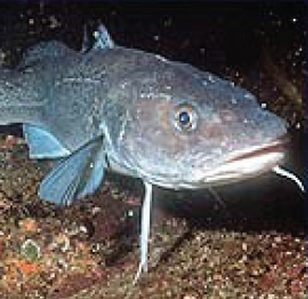
Alaskan businesses thrive with state-water cod fisheries
Fishing vessel crews in Western Alaska wrapped up a successful pot-cod season last month, building upon what’s become a mainstay winter fishery for an increasing number of Alaskan boats. Now that pots and gear are stacked and stored, we have time to look ahead at what comes next. As a young skipper within the under-60-foot pot-cod fleet, I see first-hand the value Pacific cod offers to the state. Cod is one of the top-three pillars that resident fishermen build their success upon — alongside salmon and halibut. >click to read<15:58
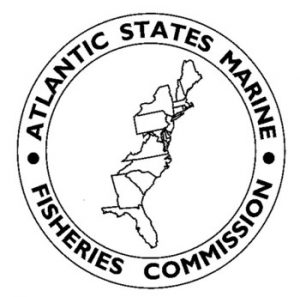
ASMFC Spring Meeting in Arlington, VA- April 30 – May 3, 2018
The Atlantic States Marine Fisheries Commission’s Spring Meeting will be April 30 – May 3, 2018 at The Westin Crystal City (Telephone: 703.486.1111), located at 1800 South Eads Street, Arlington, VA. Meeting materials are available on the Commission website at http://www.asmfc.org/home/2018-spring-meeting. Supplemental materials will be posted to the website on Wednesday, April 25, 2018. The meeting will be broadcast live on the internet, >click to listen<15:08
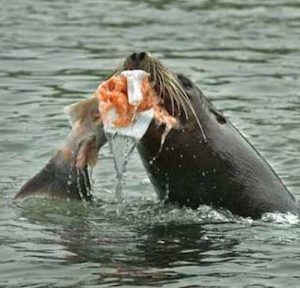
ODFW gives up on trapping Willamette sea lions
State officials have decided to give up on trapping Willamette River sea lions and transition operations to Bonneville, where the Oregon Department of Fish & Wildlife already has federal authorization to trap and kill sea lions. “It’s disheartening given what’s happening in the Willamette, but we don’t have enough staff to cover both locations so we’re moving to a place where we can be more effective,” said Bryan Wright, head of ODFW’s Marine Mammal Program, in a press release this week. In the absence of federal approval to kill California sea lions at Willamette Falls, ODFW attempted a stop-gap program of capturing and relocating sea lions this spring. >click to read<12:19
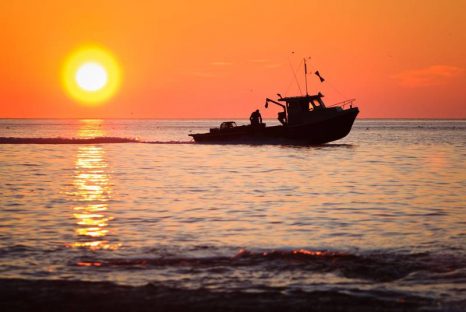
Endangered species
The federal government’s decision to extend rules protecting right whales to P.E.I.’s lobster fishermen sent waves of anxiety through the industry this week. The fishermen were reacting not only to the poor timing of the decision – coming just days before the lobster season’s opening on May 1 – but, more urgently, the prospect that their livelihood may dwindle if a right whale is spotted near a fishing vessel.,,, If our fishermen can’t prosper with their catch, it means fewer jobs at the Island’s processing facilities that employ hundreds. The effects trickle down from there, from the suppliers to lobster pounds to grocery stores, the tourism industry and eventually to all of us as consumers. >click to read<19:56

Senators push for federal assessment of right whale deaths from fisheries in Canada
Eleven Democratic senators are asking the National Oceanic and Atmospheric Administration to conduct an urgent assessment of the impacts to the endangered North Atlantic right whale from fisheries in Canada. The senators led by Massachusetts Democrat Edward Markey said fishing communities across New England have worked to reduce impacts on marine mammals. Markey said last year most observed right whale deaths were in Canadian waters. >click to read<16:35
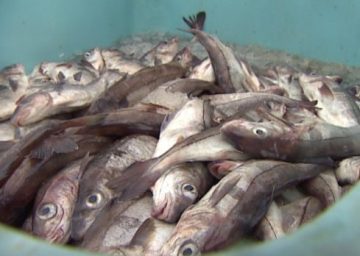
DFO stock assessment – Halibut and Haddock flourishing, cod struggling
Wild food fish populations off Atlantic Canada continue to confound scientists, with some species flourishing and others floundering. The latest examples are halibut and cod. The big flatfish is flourishing off Nova Scotia and Newfoundland, according to the latest stock assessment released by the Department of Fisheries and Oceans. However, another new DFO report shows cod stocks off southern Nova Scotia remain in dire shape.,,,Yellow flounder is another species that is struggling. >click to read< 14:56
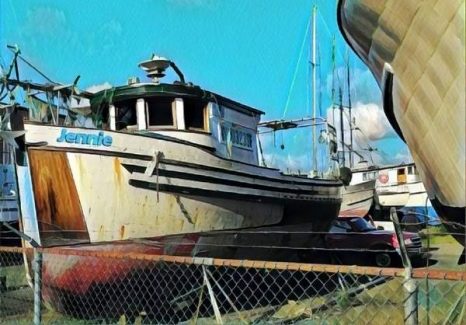
Old boats live to float
When I was growing up 200 miles from the ocean, my strongest memory of the coast was a rainy spring break when we came down to the beach. I remember walking around the Ilwaco boatyard looking at the old trawlers and dreaming. Out of the water, ships loom over you, their paint perhaps chipping and their brightwork weathered, but still they somehow promise adventure. The ragged bones of old ships are like kneeling giants above you. They seem full of stored kinetic energy, balanced impossibly on wood blocks and spindly jack stands. >click to read< 13:20
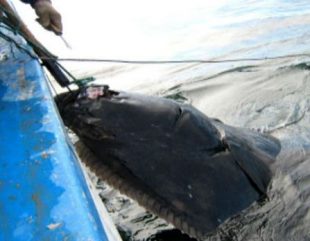
Employed or Self Employed?!! B.C. fishing company ordered to pay deckhand $15K despite confiscated catch
A B.C. fishing company has been ordered to pay one of its deckhands $14,846 even though fisheries officials seized most of the catch. The B.C. Employment Standards Tribunal recently dismissed the company’s appeal of the decision, which the director of employment standards made in July 2017, to pay deckhand Steve Hrad for a fishing trip off the B.C. coast last spring. Hrad had been hired by Lasota Fishing Ltd. — represented at the tribunal by Steve Lasota.,, “You’re not hired for a wage, you’re hired to share in the catch.,,, >click to read<12:18
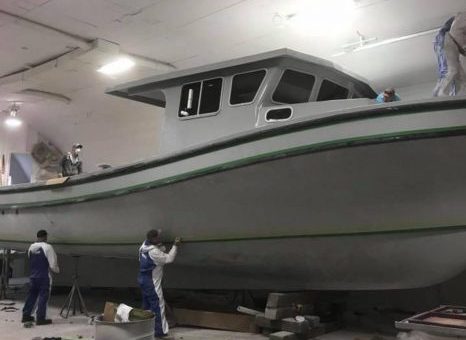
Booming Maritime lobster industry means long waits for new boats
Some boat builders in the Maritimes are reporting wait-lists for new boats of up to seven years. Good catches and prices the last few years have caused demand that far outstrips builders’ ability to supply — they don’t have space to build more, nor the staff. “The orders are just piling up,” said Roger Hutt at Hutt Brothers Boat Shop in Alberton, P.E.I. “We don’t have the capacity.” Hutt’s has 51 boats on order — the last ones on the list won’t be finished until 2025. >click to read<
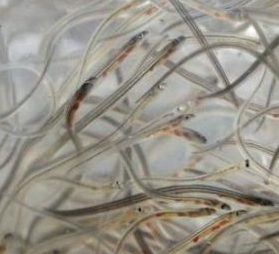
Maine baby eel harvest on pace to hit record value under catch limits
Halfway through the 2018 fishing season for baby eels, the value of landings in Maine is on track to reach its highest annual total since a statewide catch limit was imposed four years ago. With the average price remaining above $2,300 per pound since opening day on March 22, the value of the statewide catch so far was $12 million as of Thursday evening. That’s just $130,000 shy of the catch value for all of 2017. It represents 4,600 pounds caught statewide since the season started, meaning fishermen have not yet reached the halfway point of Maine’s overall annual catch limit of 9,688 pounds. >click to read<10:24
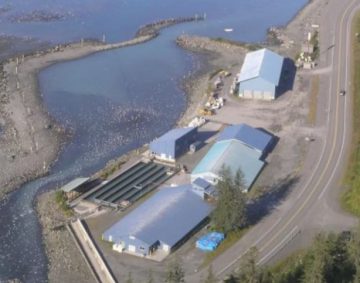
Evermore salmon
More research is needed into the interactions of hatchery and wild fish in Alaska before the Alaska Department of Fish and Game approves the dumping of additional pink salmon fry into Prince William Sound, an advisory committee to state regulators decided here this week. Virgil Umphenour, the chair of the committee and a former member of the state Board of Fisheries, says it is troubling that a state which has long prided itself on best-in-the-world, scientific management of its fisheries is allowing ever more salmon ranching with little clue as to the impacts on wild fish.,, There are obvious impacts, says Nancy Hillstrand of Homer, who has become an activist for wild fish. >click to read<08:45
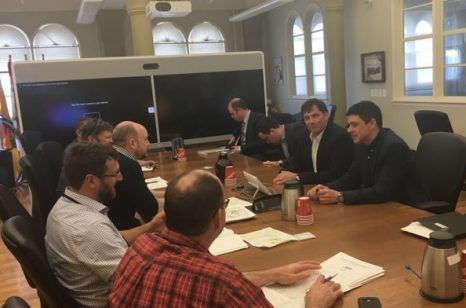
Fisheries minister stands firm on disputed whale closures after meeting lobster industry
Federal Fisheries and Oceans Minister Dominic LeBlanc is standing firm on the new rules imposed on the lobster industry that were designed to protect endangered whales but left fishermen in shock and frustration. This year’s lobster-fishing plan for the Gulf of St. Lawrence region, introduced Tuesday, included many of the same protection measures announced in March for the snow crab industry, including controversial “no-fishing” zones.,, “Those right whales, make no mistake about it, are heading north,” he said. “If there were 90 identified by American surveillance, those right whales will be coming into Canadian waters in the days and coming weeks.” <click to read<18:21
P.E.I. fisheries minister, opposition concerned over new fishing rule >click to read<
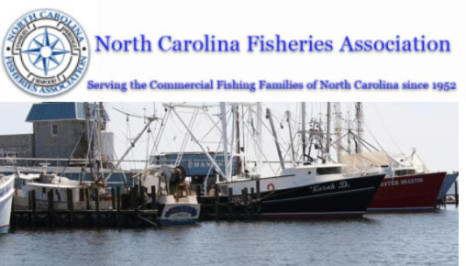
North Carolina Fisheries Association Weekly Update for April 27, 2018
>Click here to read the Weekly Update<, to read all the updates >Click here<, for older updates listed as NCFA >click here<13:26
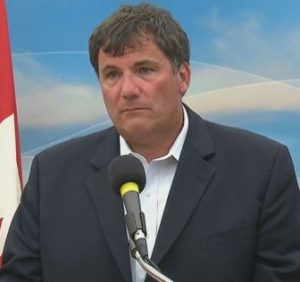
Fisheries minister meets with lobster industry today about disputed closures
Federal Fisheries and Oceans Minister Dominic LeBlanc is in Moncton on Friday to meet with the lobster industry, after new rules introduced this week to protect endangered whales left fishermen in a state of shock and frustration.,, He suggested the measures were necessary to avoid a punitive response from the U.S. and to protect the lobster industry. “Under American law, if a country does not take every reasonable and possible step to protect these highly endangered marine mammals, the American government can decide, under the Marine Mammal Protection Act of the United States, that the remedy is to close the American border to imports of fish and seafood from that country, which would have a devastating effect.”>click to read<12:10






